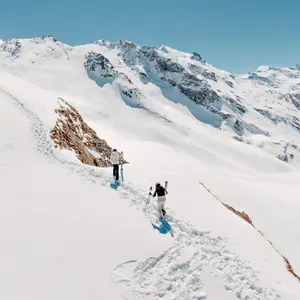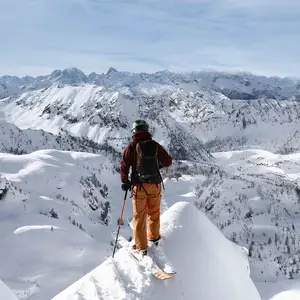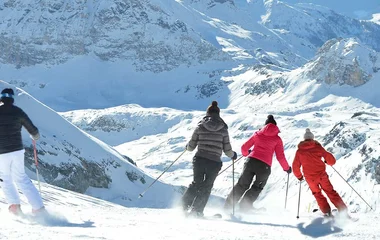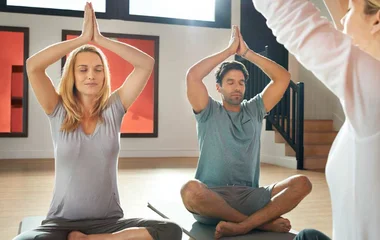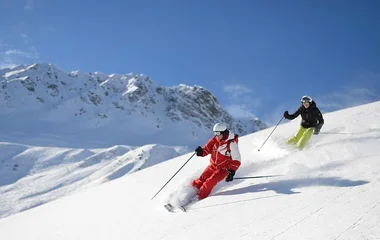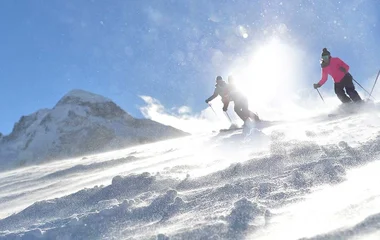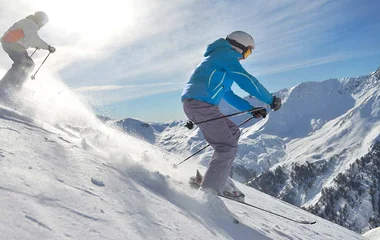If you’re fit before your holiday, you’ll be a better skier and less likely to get injured. Tackling steeper terrain requires a greater level of fitness, balance and coordination, so work on your cardiovascular fitness and strength levels in advance to make life easier once you’re on those intermediate skis. Cycling, running, hill-climbing with a backpack are all good aerobic activities, while yoga and pilates are particularly good at strengthening your core – vital for skiing.
“Good fitness allows you to consistently use the correct technique at the right time and not develop bad habits. When people get tired, they swing their shoulders around but if someone is fit, that won’t happen” , says Steve.
If you are interested in finding out more ways to get fit before you hit the slopes, then why not try out our ‘Get Ski Fit’ workout video with Adrienne LDN.
